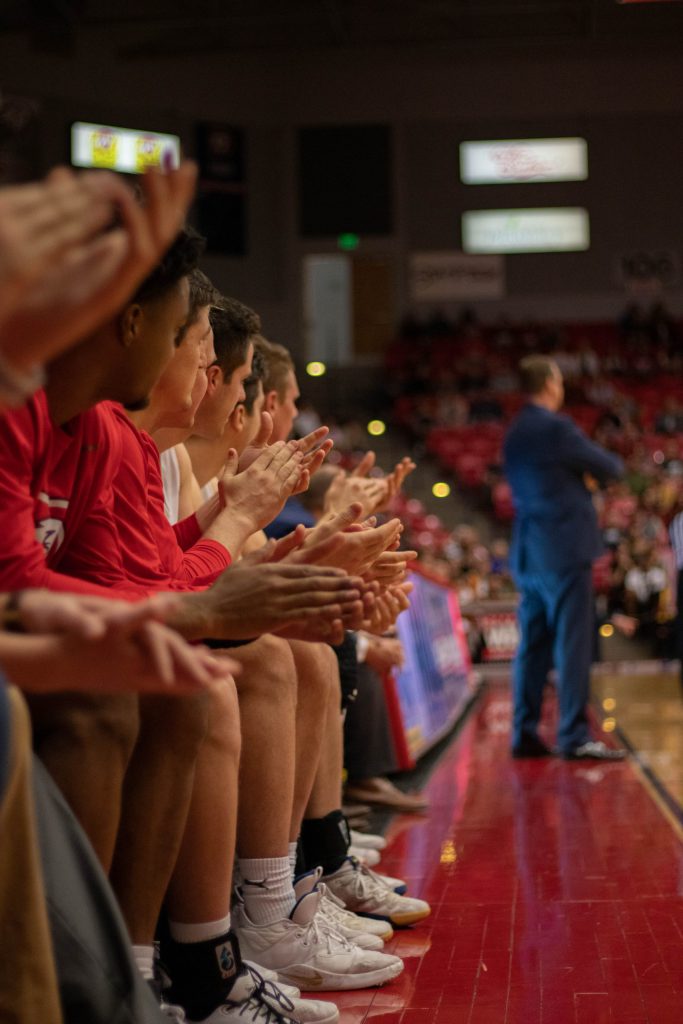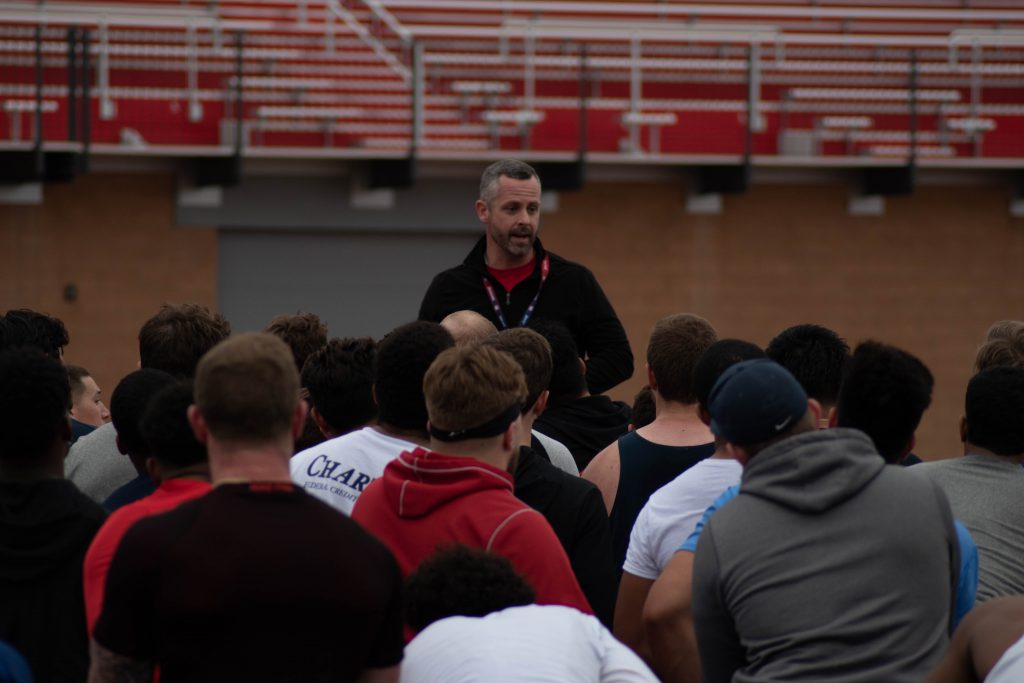The missionary age change announced at the Latter-day Saint General Conference has made a permanent change for Dixie State College athletics.
The future of many DSC students changed the morning of Oct. 6 when church leaders declared that men were able to serve their two-year missions at the age of 18, and the women were able to serve theirs at 19.
There are both positives and negatives to this situation, but DSC coaches said it is unfortunately more positive for the men and more negative for the women.
Jason Boothe, Dixie State College athletic director, said this benefits the male athletes more because they won’t have to come play at DSC for a year and then leave for their missions. Instead of players losing one year of eligibility, the players will come here after their missions and have four full years of eligibility.
Jake Schroeder, assistant men’s basketball coach, agreed that this change benefits the men because they won’t have to deal with the two-year break between seasons.
“I’d probably say the ultimate positive is having a kid for four straight years,” Schroeder said. “We’ve done it with kids in the past where they come and play a year and then come back. There’s always a transition from senior (in high school) to freshman in college, and there’s always a transition from mission to playing again.”
Schroeder said this is just something the athletic department needs to get used to in the recruiting area of DSC sports, but it isn’t something to be worried about.
“I think it’s great and we’re excited about it,” Schroeder said. “It’s just going to be something we have to adjust to just like anything else.”
This changes the women’s situation into the process the men have had to go through. If DSC women athletes decide to go on missions, they have the opportunity to come to college for a year, leave on their missions, and then come back to finish their athletic careers.
“The female sports are the ones that have to adjust because it’s never been an issue,” Boothe said.
Angela Kristensen, head women’s basketball coach, said this change definitely affects sports at Dixie.
“There could be a drop in our enrollment, and it could definitely affect athletics because a lot of our budget comes from our student fees, so that could be a huge hit for us,” Kristensen said. “The resources that we need to be successful need to be improving and not declining, so that’s probably the biggest concern for our institution and definitely our athletic department.”
But Kristensen said there are also positives to the missionary age change.
“They’re away from the game, but they come back with other developments and come back strong,” Kristensen said. “I think it would be a little harder on the women’s side because the men can bounce back in shape faster than girls can, but it’s something we have to deal with if that’s what they choose to do.”
Booth said this is a chance to take advantage of the positives and work with what DSC has.
“Given where we are, and the community we exist in, it’s just a part of the culture, and it’s just a part of what we are,” Boothe said. “And we’ll take that because of the advantages that it brings.”
Boothe said this is something the women’s sports coaches have to now be aware of because they have to be mindful of what the athletes plan for their futures.
Boothe said this changes the way the coaches will recruit because if they are interested in a high school male athlete who is going on a mission right out of high school, they can keep that athlete in mind and recruit an athlete from a junior college while he is gone for those two years.
One of the other big effects this change has on DSC is the way coaches are going to recruit incoming players.
“We’re pretty used to the mission thing so we plan around it, but now it’s going to be a little more tricky,” Schroeder said. “We just have to plan a lot further ahead and start looking at kids when they’re a junior in high school. A lot of these kids are five years out, and that’s the hard part because a lot of things can change.”
Schroeder, Boothe and Kristensen all said this will not result in the athlete losing a spot or interest of the coach if he or she decides to serve an LDS mission.
“We would never impose, even if it was our best player,” Boothe said. “If it’s something you want to do that’s important to you—you’ve got to do it.”



